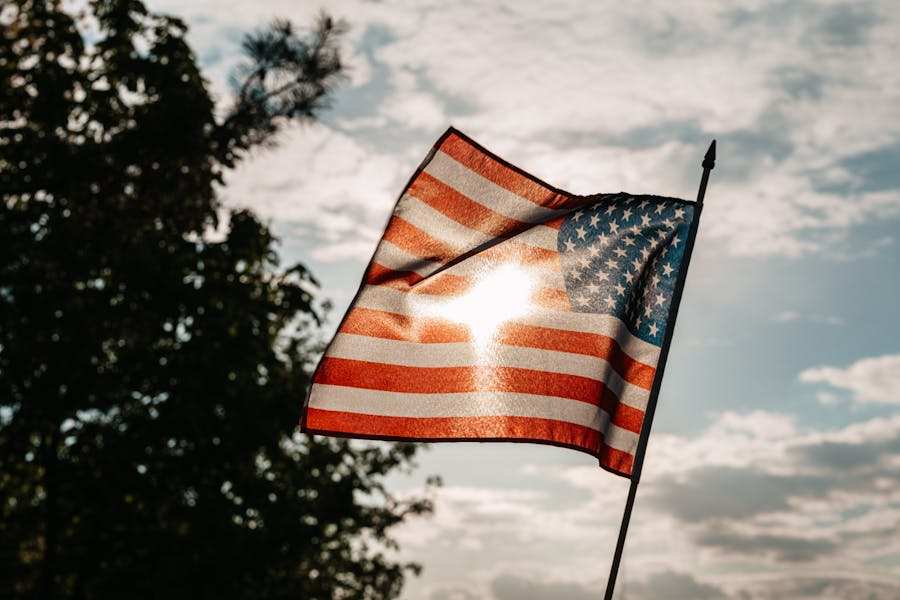
Diwali, the Festival of Lights, holds profound cultural and religious significance for millions worldwide, particularly in the Indian subcontinent. As one of the most celebrated festivals in Hinduism, Jainism, and Sikhism, Diwali symbolizes the triumph of light over darkness, good over evil, and knowledge over ignorance. With the growing Indian diaspora, Diwali has found a vibrant presence in countries across the globe, including the United States. However, despite its widespread observance among Indian communities in the USA, questions persist regarding its official recognition as a national holiday. This article delves into the origins and significance of Diwali, its evolving celebration in the United States, and the ongoing discourse surrounding its status as a national holiday.
Is Diwali a national holiday in USA?
No, Diwali is not recognized as a national holiday in the USA. While it holds significance for millions of Indian Americans and is celebrated with great enthusiasm across the country, it has not been officially designated as a federal holiday. However, various states and localities may acknowledge Diwali through proclamations or observances, reflecting the growing cultural diversity within American society.
The Origins And Significance Of Diwali
Diwali, also known as Deepavali, is a multi-day Hindu festival celebrated with zeal and enthusiasm across India and other parts of the world. The festival’s origins can be traced back to ancient Indian scriptures and mythology, particularly the epic of Ramayana.
Historical Roots: Diwali commemorates the return of Lord Rama, along with his wife Sita and brother Lakshmana, to their kingdom of Ayodhya after 14 years of exile and his victory over the demon king Ravana. According to the Ramayana, the people of Ayodhya illuminated the entire kingdom with earthen lamps (diyas) to welcome their beloved prince back home, marking the beginning of the tradition of lighting lamps during Diwali.
Religious Significance: Diwali holds deep religious significance in Hinduism, Jainism, and Sikhism, albeit with different interpretations. In Hinduism, it symbolizes the victory of righteousness (dharma) over evil (dharma) and the triumph of light over darkness. It is a time for families to gather, offer prayers to deities such as Goddess Lakshmi (the goddess of wealth and prosperity) and Lord Ganesha (the remover of obstacles), and seek blessings for a prosperous year ahead.
Traditions and Customs: Diwali is celebrated over five days, with each day carrying its significance and rituals. These include cleaning and decorating homes, exchanging gifts and sweets, wearing new clothes, lighting oil lamps and candles, bursting fireworks, and preparing delicious feasts. In some regions, the festival also marks the beginning of the Hindu New Year.
Spread of Diwali: Over the years, Diwali has transcended its religious boundaries and has become a symbol of unity, joy, and celebration for people of various cultural backgrounds. It is celebrated in India and countries with significant Indian diaspora, including the United States, the United Kingdom, Canada, and Australia.
Diwali In The United States
Diwali is significant in the United States, primarily due to the sizable Indian-American population and the country’s commitment to embracing cultural diversity. Here’s a look at how Diwali is celebrated in the USA:
Indian Diaspora:
The Indian-American community in the USA has been instrumental in bringing Diwali traditions to the country. With roots across various states, Indian-Americans have fostered a vibrant cultural exchange, introducing Diwali festivities to their local communities.
Growth of Celebrations:
Diwali celebrations in the USA have grown exponentially over the years. Major cities with large Indian-American populations, such as New York, Los Angeles, Chicago, and Houston, host grand Diwali events, including cultural performances, music, dance, and food festivals.
Recognition by Governmental Bodies:
While Diwali is not recognized as a national holiday in the USA, it has garnered recognition from governmental bodies at various levels. Some states and cities have officially proclaimed Diwali as a special observance day or cultural holiday, demonstrating the growing acceptance and respect for Indian cultural traditions.
Corporate Celebrations:
Many companies and organizations in the USA acknowledge Diwali by organizing special events and activities for their employees. From office decorations to festive gatherings and Diwali-themed lunches, corporations embrace Diwali as a time for cultural exchange and employee appreciation.
Educational Institutions:
Schools and universities across the USA also celebrate Diwali, often incorporating educational programs, performances, and art projects to teach students about the festival’s significance. This fosters cross-cultural understanding and appreciation among students from diverse backgrounds.
Community Outreach:
Beyond the Indian-American community, Diwali has gained popularity among Americans of various ethnicities. Local communities organize Diwali fairs, open houses, and cultural exhibitions, inviting people of all backgrounds to join the festivities and learn about Indian culture.
Legal Status Of Diwali As A Holiday In The USA
The legal status of Diwali as a holiday in the USA varies at different levels of government and across different jurisdictions. Here’s an overview:
Diwali is not recognized as a federal holiday in the United States. Federal holidays, such as Thanksgiving, Christmas, and Independence Day, are established by law and observed nationwide, typically with government offices, banks, and most businesses closed. While there have been discussions and petitions advocating for Diwali to be designated as a federal holiday, it has not yet received official recognition at the national level.
Some states and local governments in the USA have recognized Diwali as a holiday or special observance day. This recognition varies from state to state and city to city, with some jurisdictions officially proclaiming Diwali as a holiday or cultural celebration. For example, governors and mayors have issued proclamations recognizing Diwali and encouraging residents to participate in celebrations in states with significant Indian-American populations, such as New Jersey and California.
Diwali’s observance often depends on individual employer policies in the absence of federal or state mandates. Some companies may grant employees time off or provide flexibility to celebrate Diwali, while others may not formally recognize the holiday. Workplace accommodation for religious and cultural observances is guided by federal anti-discrimination laws, such as Title VII of the Civil Rights Act of 1964, which require employers to reasonably accommodate employee’s religious practices unless doing so would impose an undue hardship.
Schools and universities may also recognize Diwali as a holiday or cultural observance. Diwali may be included in the academic calendar in some school districts, allowing students to take time off to celebrate with their families. Educational institutions may organize special activities, assemblies, or educational programs to teach students about the significance of Diwali and promote cultural diversity and understanding.
Conclusion
While Diwali has not attained the status of a federal holiday in the United States, its significance continues to resonate nationwide. Recognized at varying levels by state governments, local authorities, and institutions, Diwali symbolizes cultural diversity and inclusivity. Its celebration fosters unity, understanding, and appreciation among diverse communities, enriching the fabric of American society. As discussions persist about its official recognition, the spirit of Diwali remains vibrant, illuminating the path toward greater cultural harmony and mutual respect.








